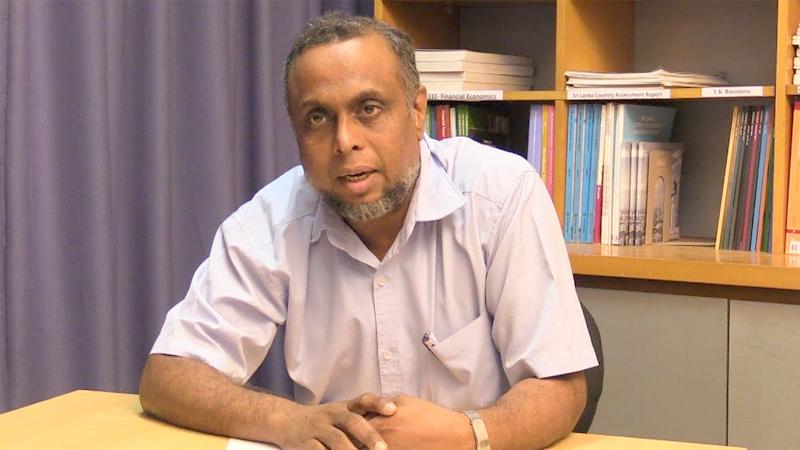
The Committee only expressed its surprise that a second preparatory agreement of USD 2.6 million was signed to top-up a previous agreement of USD 7.4 million, and did not say a transaction was made for certain, Chairman of the Committee appointed to review the Millennium Challenge Corporation (MCC) agreement Prof Lalithasiri Gunaruwan told the media on Friday (3).
Responding to ‘misinformation’ stating the Committee accused the former government of previous monetary commitment of USD 10 million to the United States in two preparatory agreements prior to signing the MCC compact, he said they found evidence that the two controversial agreements were signed in 2017 and 2018.
This was a grant apparently for the preparation of the project (MCC compact), he said adding the committee found it surprising within a year the grant of USD 7.4 million was topped up to USD 10 million by getting an additional USD 2.6 million.
“The Committee observed this and asked the relevant agency- External Resources Department- as to why this was topped up. What happened to the first grant?” Prof. Gunaruwan said.
 The External Resources Department has been unable to give an explanation. The committee also has found that the Department did not have a record of the grant.
The External Resources Department has been unable to give an explanation. The committee also has found that the Department did not have a record of the grant.
In a twitter message dated June 26, the US Embassy in Colombo said, “No MCC grant monies were transferred to or spent by the Government under the current $480 million grant. Funds for preparatory activities have been canceled or indefinitely postponed, pending the Government’s decision whether to proceed with the grant.”
The committee chair also said that if the ‘cash’ was not spent then the purpose of that money was not achieved.
“Then the bride is not ready. Why did the cabinet give approval to sign the agreement?” he said.
Through the MCC agreement Sri Lanka receives USD 480 million for projects on land administration and transport.
Prof. Gunaruwan said Sri Lanka can decide not to sign the agreement.
“We have proposed that this has not been properly prepared. The bride is not ready and the bride is not known therefore you cannot sign the marriage,” he said. “And if you ever think of marrying again, select the bride well, study the bride, get permissions, make sure of what you are going to do and then go and sign it,” he said.
The four-member committee was appointed on January 1, 2020. It submitted the final reports to the authorities on June 23, 2020.
“The summary of findings is that these projects have not been properly analysed within the established institutional settings of Sri Lanka. Particularly in view of perceiving multi-sectoral impacts of these projects.
There are agencies such as the National Planning Department empowered that any government investment project needs to be thoroughly appraised and all macro-level analyses have to be done before the government grants approval. We could not find any such multi-sectoral, multi-directional analysis that was done,” Prof. Gunaruwan said.
He said the Committee found a report named ‘Constraint Analysis’ which was issued in 2016 by the Harvard University Center for International Development. It was through this report that land and transport were selected as the key constraints to Sri Lanka’s development.
“They say that the selection was done on Economic Rate of Return (ERR) but unfortunately none of the government agencies, not even the MCC administrative team under the Prime Minister’s office in Sri Lanka could provide us with the detailed calculations of those, and the National Planning Department does not know anything about it.
So, we had to conclude that Sri Lanka’s administrative institutions have not adequately participated or consulted or have not been involved in preparing this Constraint Analysis.
“Therefore, whether these land and transport projects have been conceded such that there are no impacts on other sectors such as they are all good for the country’s development and they will not have economic, security or national sovereignty impacts have not been properly evaluated.
“Even with regard to the conditional analysis that there are many clauses, many conditionalities which are not in line with the Sri Lankan legal system, present laws and also our constitutional provisions therefore we concluded that the proposed Compact Agreement if signed by the government would basically put the country into difficulty,” he said.
